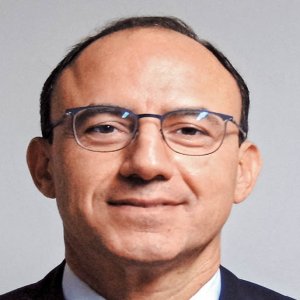Caught Between Development and Regulation

STORY INLINE POST
Q: What hurdles do Mexican generics companies face when trying to supply the government?
A: We hardly sell to the government because it has adopted an aggressive price-reduction policy. This policy erodes companies like pharmaceuticals, which need to earn money to continue reinvesting in research. For companies like us, selling to the government is not viable. We have decided to only sell particular products to state hospitals, so 95 percent of our sales are to the private market. Any business on which we do not make a 20 percent margin is not viable for us.
Q: Collins has said it is targeting 1 percent market share of generics in Mexico in five years. What are your next steps?
A: In this changing market, five years is a long time. Beyond that time frame is unpredictable but we plan to penetrate the market to 1 percent and then change the type of business we manage. We work in pharmachemical generics but in five years we would like to enter the biosimilars market. We also would like to enter the oncological sector because it is more profitable and sells in greater volume. Biosimilars already exist in Europe but many problems with sanitary regulations remain, which has impeded biosimilars from developing worldwide. These problems appear close to being resolved and once they are, biosimilars will develop quickly because many companies in Europe and the US are moving rapidly. Here in Mexico, some companies like ProBioMed, Cryopharma and Silanes have undertaken extensive research but have not advanced further due to uncertainty with regulations. There is still no fixed date for this to conclude because so far COFEPRIS has mainly focused on revising technical aspects.
Q: What results are you expecting from your joint venture with FEMSA?
A: FEMSA wants to enter the Mexican market with 1,000 pharmacies and began acquiring units three years ago. It established strong relationships with commercial partners and we were lucky enough to be selected. The relationship is just beginning but is going well and we are working on becoming one of their main laboratories. Our goal with all our partners is to bring our experience and knowledge to the table. Sometimes we can suggest a product they do not have in their portfolio and generally our laboratories and expertise can refine their offering and make their businesses more profitable. We want to make health products more affordable for the general population so people have options. We also expect this to help us reach the objective of 1 percent market share.
Q: To which Central American countries are you planning to export to and what criteria do you use?
A: COFEPRIS has done a great job becoming an international regulatory agency, which has allowed us to open borders. The first criterion is to select those countries that recognize our sanitary regulations with no extra paperwork needed. Many of our products are already available in Chile, for example. The second criterion is the size of the market, leading us to be interested in Colombia and Costa Rica.
Argentina and Brazil are not priorities as the latter is protectionist and the former has economic issues. Colombia is the second most important market after Brazil to which we already export a little but we paused this because the Mexican market demands our entire production; it has grown significantly so we are 100 percent concentrated on it. Once we have expanded industrially, we will continue to export, which may merit us building an annex to our plant in Guadalajara. Next to the plant there is a land plot that we are clearing and preparing for expansion. We hope to begin building in the first quarter of 2017.
Q: What other short-term plans do you have for Laboratorios Collins?
A: Within the group there is another subsidiary called Salud Natural that has a naturist focus and markets herbal products. We hope to obtain the GMP for Salud Natural’s plant. It would be the first natural product plant in Mexico to obtain a GMP and would allow us to export products to the US, which is another objective for 2017.






















